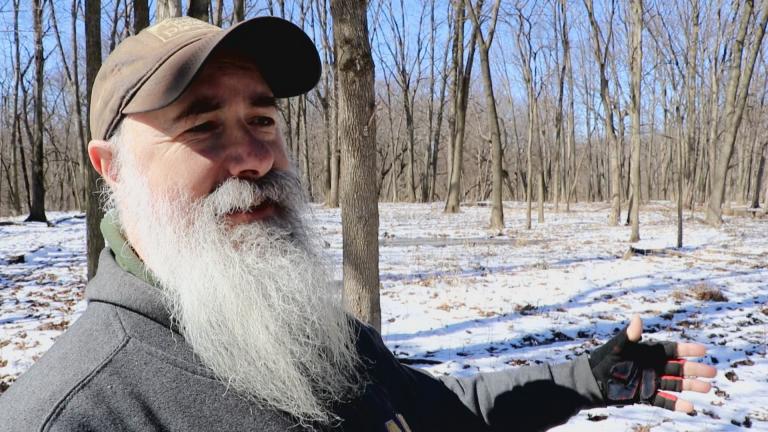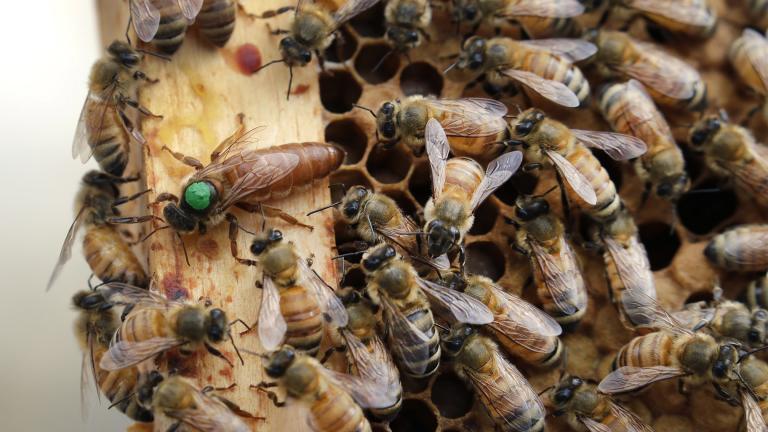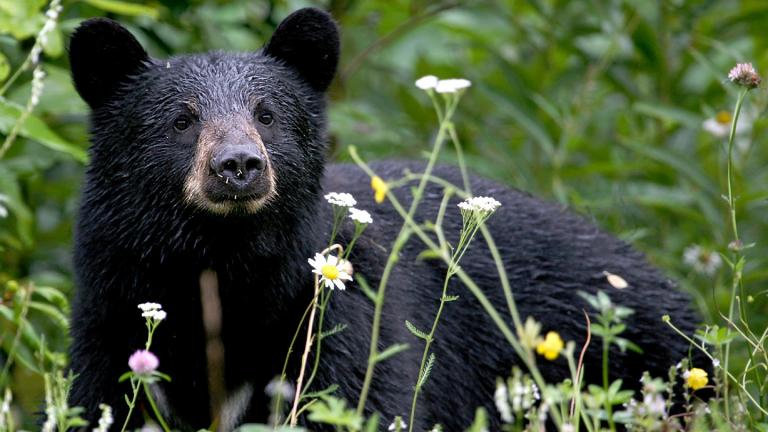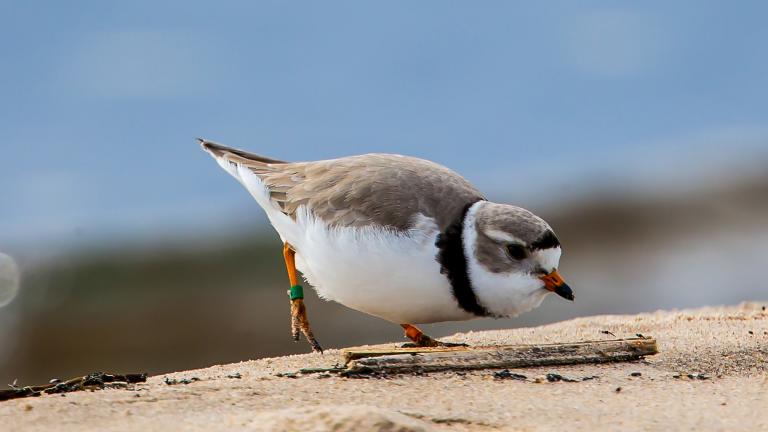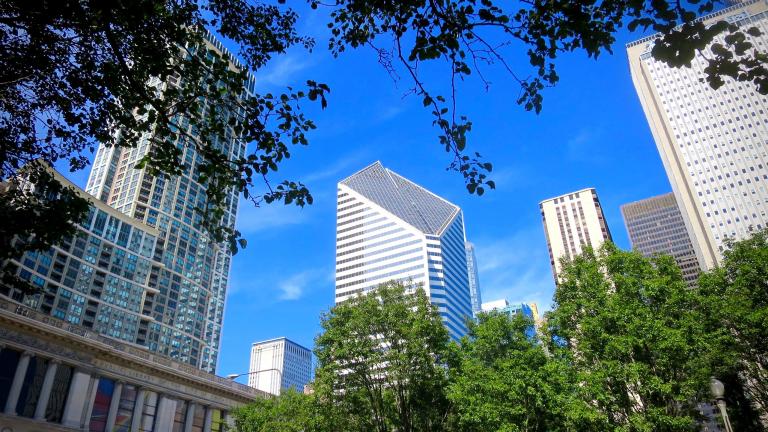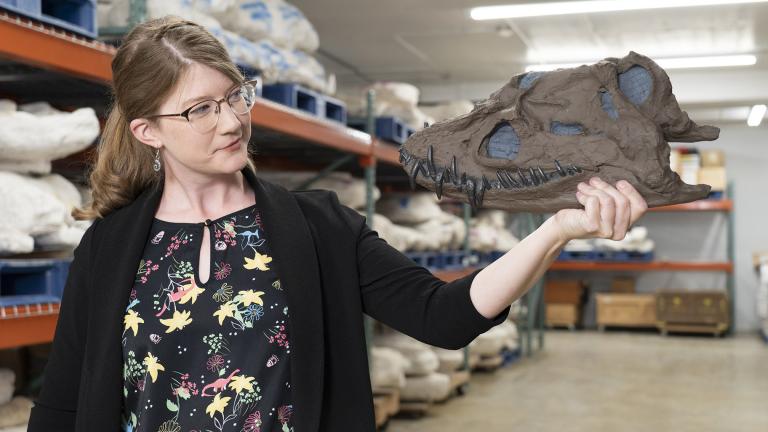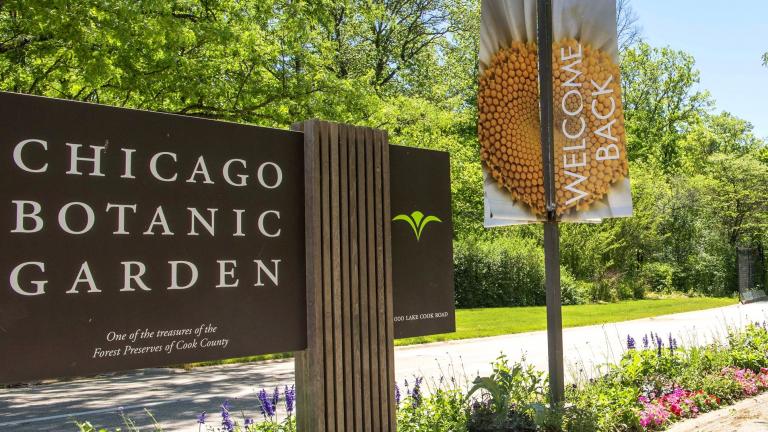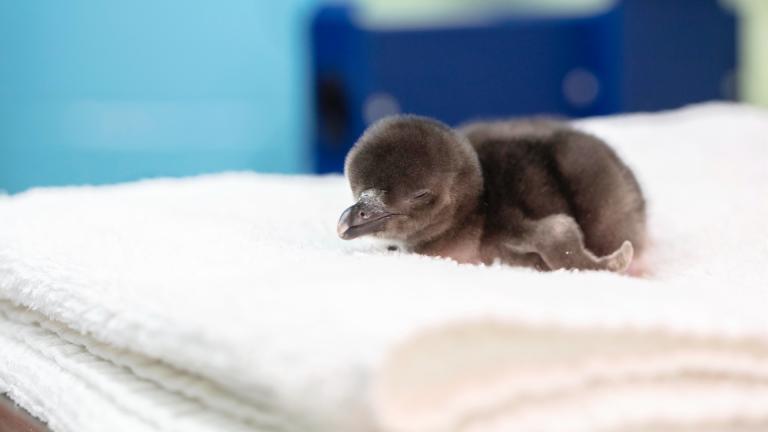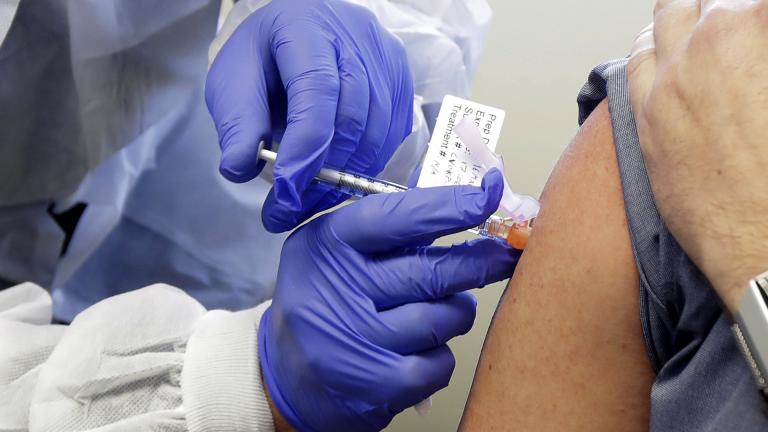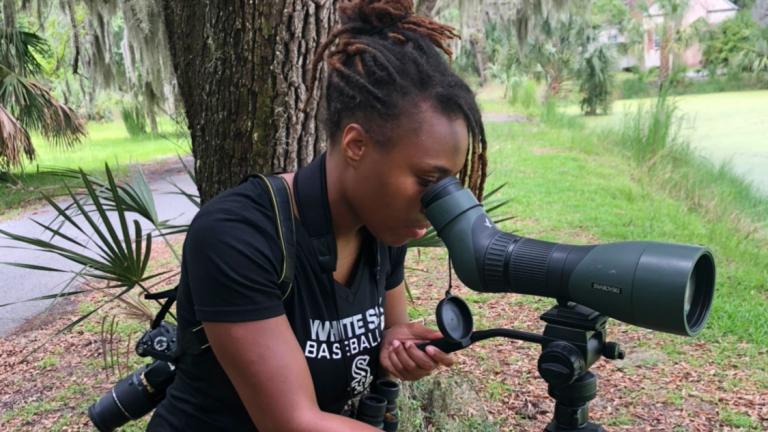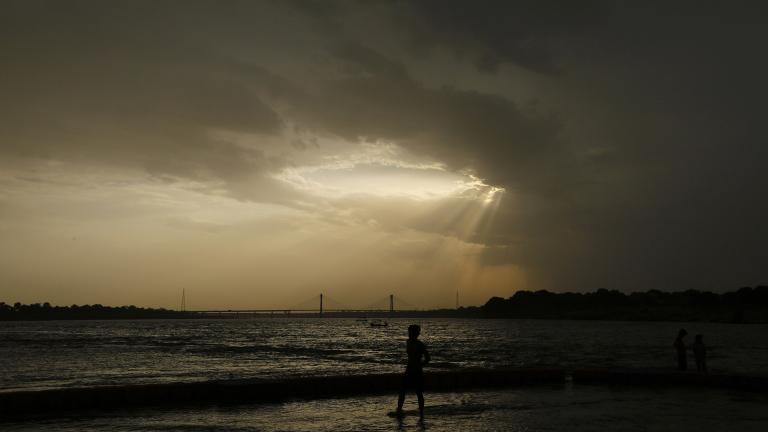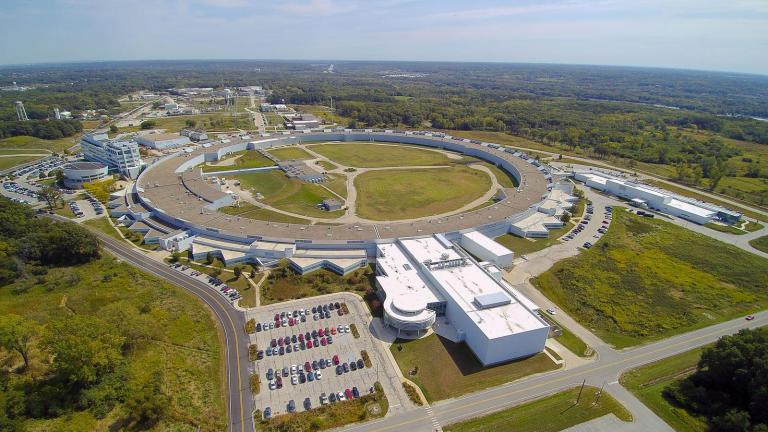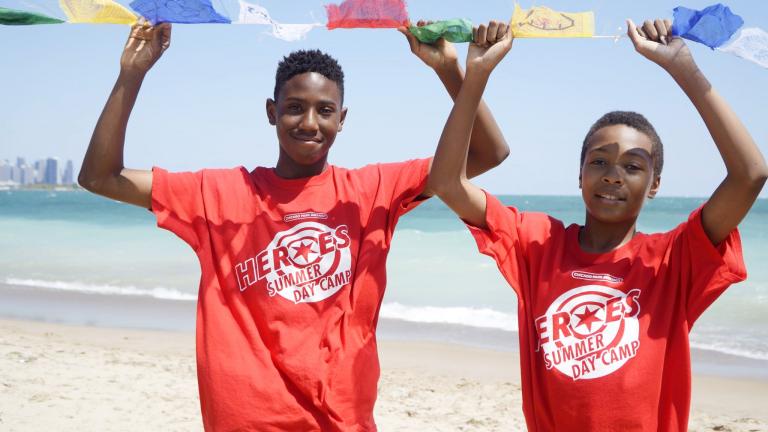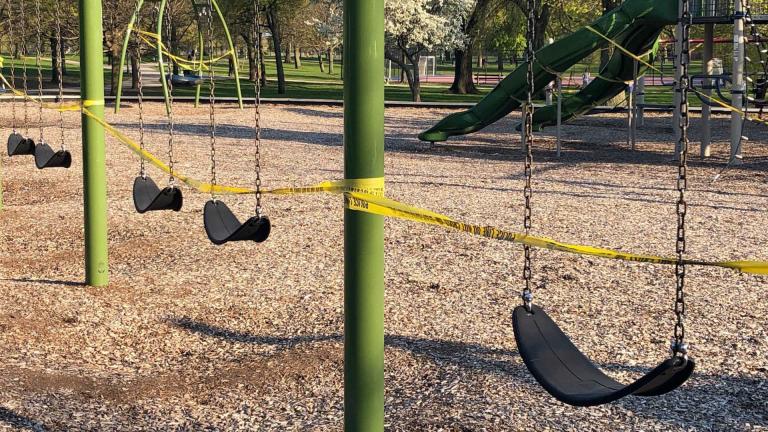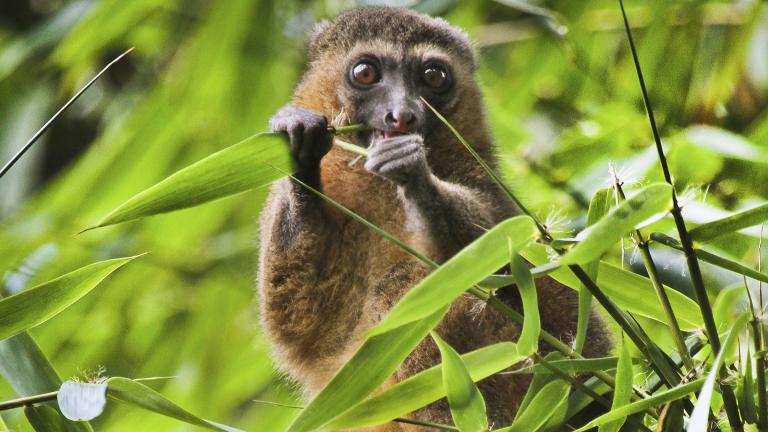Science & Nature
More than 200 species of birds have been identified at this small forest preserve, along with hundreds of other living things. We meet up with Jeff Skrentny and several dozen volunteers for a morning of pre-pandemic restoration work.
American honeybee colonies have bounced back after a bad year, the annual beekeeping survey finds.
Officials are telling people to keep their distance from the bear. People aren’t listening.
A pair of endangered piping plovers, nicknamed Monty and Rose, nested once again at Montrose Beach, where their new chicks just hatched. Plover monitors are on the scene to make sure excited visitors don't inadvertently harm the birds.
The 2020 census of the region’s trees — the largest undertaking of its kind in the country — will build on the inaugural 2010 count and help municipalities set priorities for creating healthier green infrastructure, particularly in underserved communities.
The new WTTW-produced PBS series “Prehistoric Road Trip” is a project more than two billion years in the making. Host Emily Graslie tells us about the show.
To limit the potential for overcrowding, the garden is implementing a timed-ticketed entry policy. Non-members will get their first chance to register for a slot on Friday. Here’s what else you need to know.
Like any proud new parent, the Shedd Aquarium is sharing adorable photos of its newest arrivals: four Magellanic penguin chicks, all of which hatched in mid-to-late May.
Next month, the University of Illinois at Chicago will begin testing a vaccine to see if it will prevent people from getting the novel coronavirus or experiencing severe illness from it if they do get it.
Chicagoans are getting their beloved lakefront trail back, with the reopening of the 18-mile path set for next week. There’s just one condition: You’ve got to “keep it moving,” people.
Chicago native Deja Perkins was one of the organizers of the recent #BlackBirdersWeek campaign. Her mission is to get more people who look like her interested in wildlife, natural resources, ecology and conservation.
Last month the global average temperature was 60.3 degrees, tying 2016 for the hottest May in 141 years of record keeping, according to the National Oceanic and Atmospheric Administration.
Scientists at Argonne National Laboratory have created the most detailed simulation that exists to model the spread of COVID-19 in Chicago — and what it shows is sobering.
For parents who’ve been strapped for child care during the coronavirus shutdown, relief is in sight. But there will be even less capacity than normal this year, so prepare to act fast.
Chicago parks have reopened — though technically the outdoors was never “closed,” except along the lakefront — but access to facilities and equipment will remain limited.
Around the world, government resources diverted to pandemic efforts have opened opportunities for illegal land clearing and poaching. Lockdowns also have derailed the eco-tourism that funds many environmental projects.

